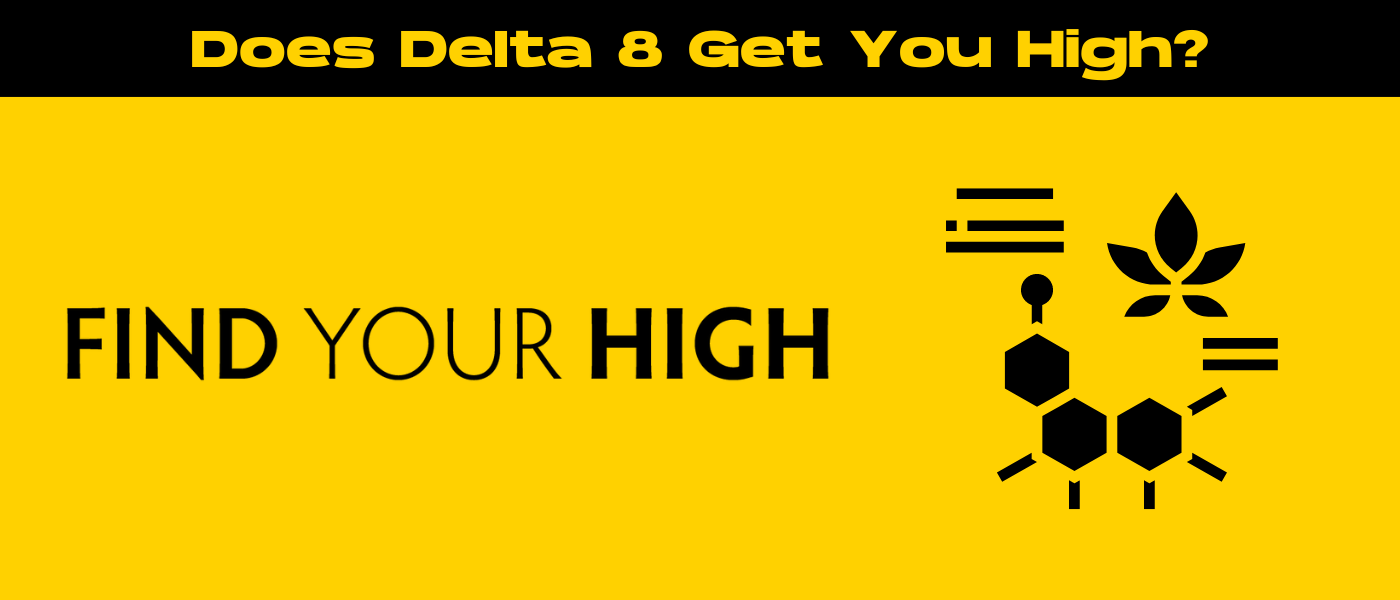Delta 8 THC is a less-known cannabinoid from the cannabis sativa plant that’s been getting a lot of attention lately. It’s different from the well-known Delta 9 THC because it’s said to give a smoother, less intense high, making it attractive for those looking for the benefits of cannabis without super strong psychoactive effects. But does delta 8 get you high?
In this blog, we’ll dive into what Delta 8 THC really is, how it affects you, its legal status, and what health considerations to keep in mind. Keep in mind that Delta 8’s legality differs from place to place and can change with new legislation. People also react differently to Delta 8 THC, so it’s important to be aware of potential health concerns.
Our goal is to give you a clear picture of Delta 8 THC within cannabis plants, including the science behind it, where it stands legally, and how it fits into the wider world of weed. Let’s begin!
What is Delta 8 THC?
Delta 8 THC, chemically known as delta-8-tetrahydrocannabinol, is a minor cannabinoid found in the cannabis plant. It exists in much smaller concentrations compared to its more famous cousin, Delta 9 THC, the primary psychoactive compound in marijuana.
Structurally, Delta 8 THC is similar to Delta 9 THC—the difference lies in the placement of a double bond on the chain of carbon atoms, which affects how it interacts with the body’s endocannabinoid system, resulting in milder psychoactive effects.
Unlike Delta 9 THC, which is known for producing intense psychoactive effects, Delta 8 is noted for providing a more clear-headed experience, often described as relaxing and uplifting without overwhelming euphoria.
Legal status varies significantly by region, with some areas treating Delta 8 in a manner similar to CBD, allowing its sale and consumption, while others categorize it alongside Delta 9 THC, subjecting it to strict cannabis laws.
Understanding the ‘High’
The term ‘high’ is commonly used to describe the effects of cannabis on the mind and body, primarily induced by compounds like THC binding to the brain’s cannabinoid receptors.
The endocannabinoid system, a complex network of receptors and neurotransmitters, plays a key role in regulating mood, memory, appetite, and pain sensation. When THC activates these receptors, particularly in the brain’s prefrontal cortex and hippocampus, it can alter perception, mood, and cognitive functions, leading to the euphoric and altered state referred to as being ‘high’.
The intensity of these effects can vary significantly, depending on the type and amount of THC consumed, along with individual biochemistry and tolerance levels.
Delta 8 THC, in particular, interacts with the same receptors but in a way that typically induces a milder, more manageable high compared to Delta 9 THC. This provides a potentially appealing option for those seeking the therapeutic or medical uses of cannabis with less intense psychoactive effects.
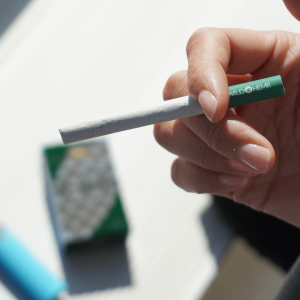
Delta 8 THC vs. Delta 9 THC
Knowing the differences between Delta 8 THC and Delta 9 THC is important for anyone smoking cannabis. Note that both interact with the body’s endocannabinoid system, but their effects vary because their chemical structures differ.
Psychoactive Effects
Delta 9 THC is widely recognized for its potent psychoactive effects. It can induce strong feelings of euphoria, alter sensory perception, and sometimes lead to anxiety or paranoia in high doses or among sensitive individuals.
On the other hand, Delta 8 THC offers a milder high. Users often report feeling relaxed and clear-headed, with fewer instances of the negative effects associated with Delta 9 THC. This makes Delta 8 THC a preferred choice for those desiring the benefits of THC without the overwhelming high.
Potency Comparison
In terms of potency, Delta 8 THC is generally considered to be less potent than Delta 9 THC. This lower potency contributes to its milder psychoactive effects.
However, the exact difference in potency can vary based on several factors, including the method of consumption, the individual’s tolerance level, and the concentration of the cannabinoid in the product being used.
Side Effects
Both Delta 8 and Delta 9 THC can cause side effects, though they tend to be more pronounced with Delta 9 THC due to its higher potency. Common side effects of Delta 9 THC include dry mouth, red eyes, increased appetite, and short-term memory impairment.
While Delta 8 THC can also cause these side effects, they are typically less severe. However, because Delta 8 THC is a relatively new and less studied cannabinoid, consumers should proceed with caution and be aware of potential unknown risks.
The Science Behind Delta 8 THC
Delta 8 THC, while not as extensively researched as Delta 9 THC, has been the subject of several scientific studies aiming to understand its properties, benefits, and safety concerns.
Research suggests that Delta 8 THC could possess various medicinal benefits attributed to its interaction with the body’s endocannabinoid system. This system is crucial for balancing many physiological processes, including pain, mood, appetite, and stress.
While the body of research on Delta 8 THC is growing, it is not as vast as that dedicated to more prevalent cannabinoids. Early studies indicate that Delta 8 THC may share some of the therapeutic qualities of Delta 9 THC, but with fewer psychoactive effects, making it a subject of interest for medicinal and therapeutic benefits.
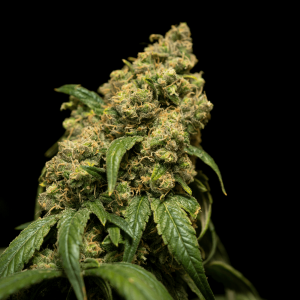
Potential Medical Benefits
Researchers are looking into Delta 8 THC because it might help treat various conditions. Early studies and experiences suggest it can help reduce nausea, especially in cancer patients undergoing chemotherapy.
Also, it may be beneficial for relieving pain, reducing inflammation, and lowering anxiety levels. The reason Delta 8 THC could be beneficial is that it attaches to the cannabinoid receptors in the nervous system, but not as strongly as Delta 9 THC does.
Effects on Anxiety, Pain Relief, and Nausea
Delta 8 THC has been reported to have anxiolytic (anxiety-reducing) effects, making it appealing for those struggling with anxiety disorders seeking a natural remedy.
In the context of pain relief, it might offer a less potent but effective alternative to traditional painkillers, with a potentially lower risk of side effects.
Additionally, its ability to reduce nausea makes it a good option for patients in treatments that often cause severe nausea.
How Delta 8 THC Is Consumed
Delta 8 THC is available in various forms, catering to different preferences for consumption.
- Vaping and e-liquids: Inhaling vaporized Delta 8 THC through vapes or e-cigarettes is a popular method for its fast-acting effects.
- Edibles and gummies: Consuming Delta 8 THC in the form of edibles or gummies provides longer-lasting effects but with a delayed onset compared to inhalation methods.
- Tinctures and oils: Sublingual use of Delta 8 THC through tinctures or oils is favored for precise dosing and relatively quick onset of effects.
- Topicals: Topical applications of Delta 8 THC in creams or lotions are considered for localized relief of pain or inflammation, without systemic effects.
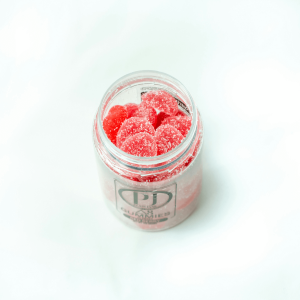
Legal Considerations
Understanding the legal side of Delta 8 THC means getting to grips with how the laws differ between the federal government and individual states.
Thanks to the 2018 Farm Bill, hemp-derived compounds like Delta 8 THC are legal federally, as long as they have less than 0.3% Delta 9 THC. But, it gets tricky with state laws, as they’re all over the place: some states have banned Delta 8 THC, while others allow its sale and use. This makes for a complicated situation for both consumers and businesses, who need to stay on top of these rules to avoid any legal issues.
In places where Delta 8 THC is banned, buying or using it could land you in trouble. What happens next with Delta 8’s legality could depend on new laws at both the state and federal level, and possibly FDA rules, especially as more people become interested in consumption.
Dosage and Safety
Consuming Delta 8 THC requires a careful approach to dosage and an understanding of individual tolerance levels to ensure safety and minimize adverse effects or serious health risks.
For those new to Delta 8 THC, starting with a low dosage is key. A typical starting point might be between 5 to 10 milligrams per use. It’s vital to wait and assess the effects, as Delta 8 can take longer to manifest its full impact, especially in edible form.
It’s important to remember that tolerance to Delta 8 THC can increase (or decrease) over time, necessitating larger or smaller doses to achieve the same effects. It’s important to monitor tolerance levels and take tolerance breaks if necessary to reset the body’s response to the cannabinoid.
Additionally, users should ensure they are in a safe environment when experimenting with Delta 8 THC, particularly when trying it for the first time. Avoid operating heavy machinery or driving, and consider the timing of consumption since effects can last several hours.
Possible Side Effects
Delta 8 THC, like all substances, can cause side effects. Awareness and understanding of these can enhance the experience and safety of its use.
Users may experience dry mouth, red eyes, altered sensory perception, and in some cases, feelings of anxiety or paranoia. These effects are generally less intense than those associated with Delta 9 THC but can vary based on dosage and individual sensitivity.
How to Mitigate Negative Experiences
Staying hydrated, consuming in a comfortable and familiar setting, and having a trusted person nearby can help mitigate discomfort. Starting with a low dose until you understand your reaction to Delta 8 THC can also prevent negative experiences.
How to Use Delta 8 THC Safely
A responsible and measured approach can significantly enhance the safety and enjoyment of using Delta 8 THC.
Starting with Low Doses
Begin with a modest dose and gradually increase it while monitoring your body’s response. This method helps in identifying a comfortable dosage that provides the desired effects without unwanted side effects.
Monitoring Effects Before Increasing Dosage
Pay close attention to how you feel after each dose before deciding to increase the amount. This cautious approach ensures that you don’t inadvertently consume too much, leading to an uncomfortable experience.
Consultation with Healthcare Professionals
If you have pre-existing health conditions or take other medications, consulting with a healthcare professional before using Delta 8 THC is crucial. They can provide guidance on potential interactions and health implications, ensuring your safety.

Delta 8 and Drug Testing
When thinking about using Delta 8 THC, it’s important to realize how it can impact drug testing. This can affect jobs and lead to legal trouble.
Even though Delta 8 THC is legal on a federal level, it might still show up on a drug test looking for THC. This is because Delta 8 THC and Delta 9 THC have similar chemical structures, which can confuse the test into not knowing the difference between them. As a result, people who use Delta 8 THC could risk losing their jobs or face legal problems, especially in places where THC is illegal.
Also, how long Delta 8 stays in your body can vary based on factors such as how often you consume it, your metabolism, and your body type, but it’s usually detectable for the same time as Delta 9 THC, ranging from a few days to weeks in urine tests. This underlines the need to be aware of the potential risks and think about timing if you’re going to be drug tested.
Conclusion
In short, Delta 8 THC stands out for its unique effects, legal aspects, and safety measures. It’s known for being less psychoactive than Delta 9 THC, offering a milder option for users.
However, navigating its legal status requires attention to state laws, even though it’s allowed federally by the 2018 Farm Bill. Using it responsibly means knowing how much to take, understanding possible side effects, and taking steps to stay safe.
It’s crucial for users to start with small doses, keep track of how it affects them, and talk to healthcare providers if necessary. Since it can show up in drug tests, users should think about how it might affect their job and legal situation.
Promoting responsible use and further research will help clarify Delta 8 THC’s pros and cons, leading to a safer and better-informed experience for everyone.
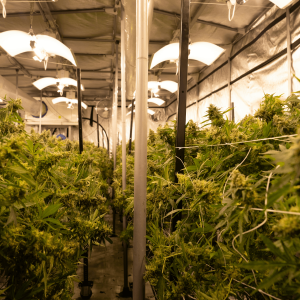
Frequently Asked Questions
1. Is Delta 8 enough to get you high?
Yes, Delta 8 THC can induce a high, though it’s generally considered to be milder compared to the more well-known Delta 9 THC. Users report feeling relaxed, uplifted, and clear-headed. However, individual experiences may vary based on dosage and personal tolerance.
2. Does Delta 8 work for stoners?
Delta 8 THC can be appealing to regular cannabis users (stoners) looking for a less intense, more manageable, and legal high within the hemp industry. It offers many of the same benefits as Delta 9 THC but with reduced psychoactive effects, making it suitable for those who want to avoid feeling overly intoxicated.
3. Does Delta 8 give you a mind high?
Yes, Delta 8 THC can provide a cerebral or “mind” high, though it tends to be less potent and overwhelming than that of Delta 9 THC. Users often describe it as a pleasant, mild euphoria that allows for greater functionality and focus.
4. Can you drive high on Delta 8?
Driving under the influence of Delta 8 THC is not recommended. Even though it is less psychoactive than Delta 9 THC, it can still impair judgment, coordination, and reaction times, making driving unsafe. Always use Delta 8 responsibly and avoid operating vehicles or heavy machinery while under its influence.
5. What is synthetic Delta 8?
Synthetic Delta 8 refers to Delta 8 THC that is artificially created in a laboratory, rather than being directly extracted from the cannabis plant. This synthetic version is often produced through a chemical process called isomerization, where CBD (cannabidiol) extracted from hemp is converted into Delta 8 THC. This process allows manufacturers to produce Delta 8 THC legally, as the 2018 Farm Bill permits the derivation of products from hemp.
However, the synthetic nature of such Delta 8 raises questions about purity, potential contaminants, and the lack of regulation in the market given that it’s possible the ‘manufacturer’ could have used potentially unsafe household chemicals or other potentially harmful substances causing significant public health concerns.
Consequently, it’s important for consumers to research and select products from reputable sources that provide third-party lab testing results. If you believe you’ve consumed potentially harmful chemicals, reach out to national poison control centers as soon as possible.

 Rewards
Rewards



